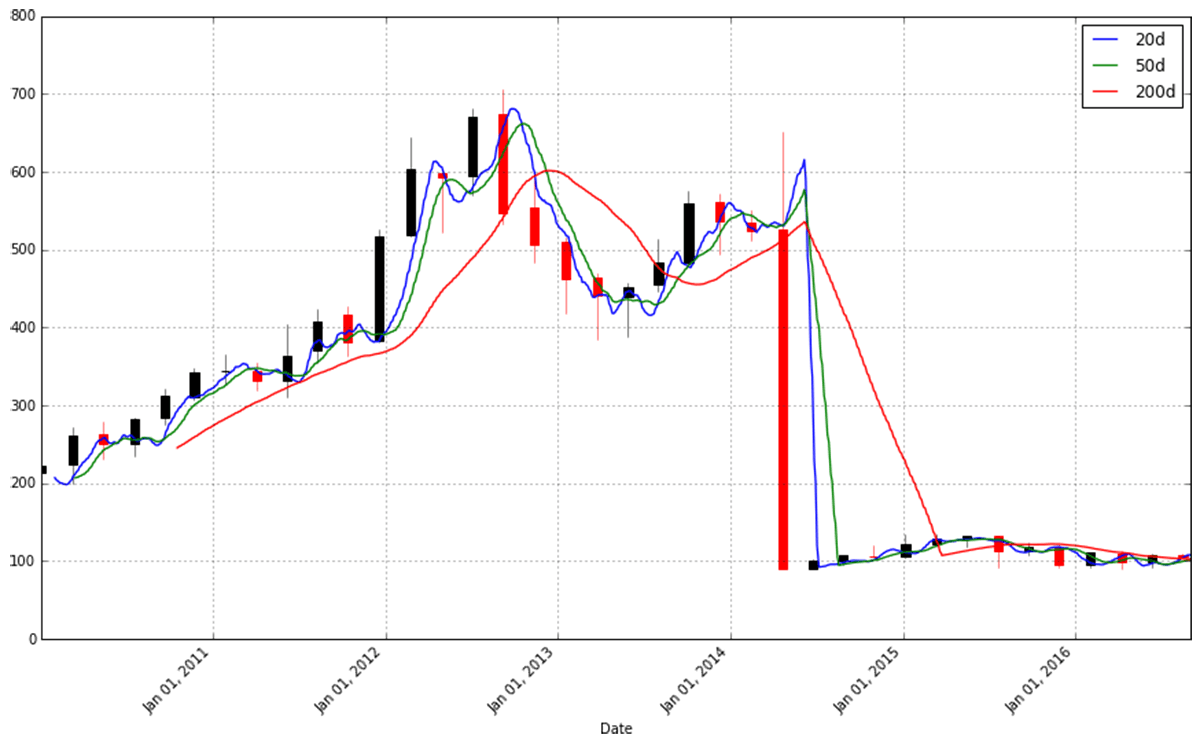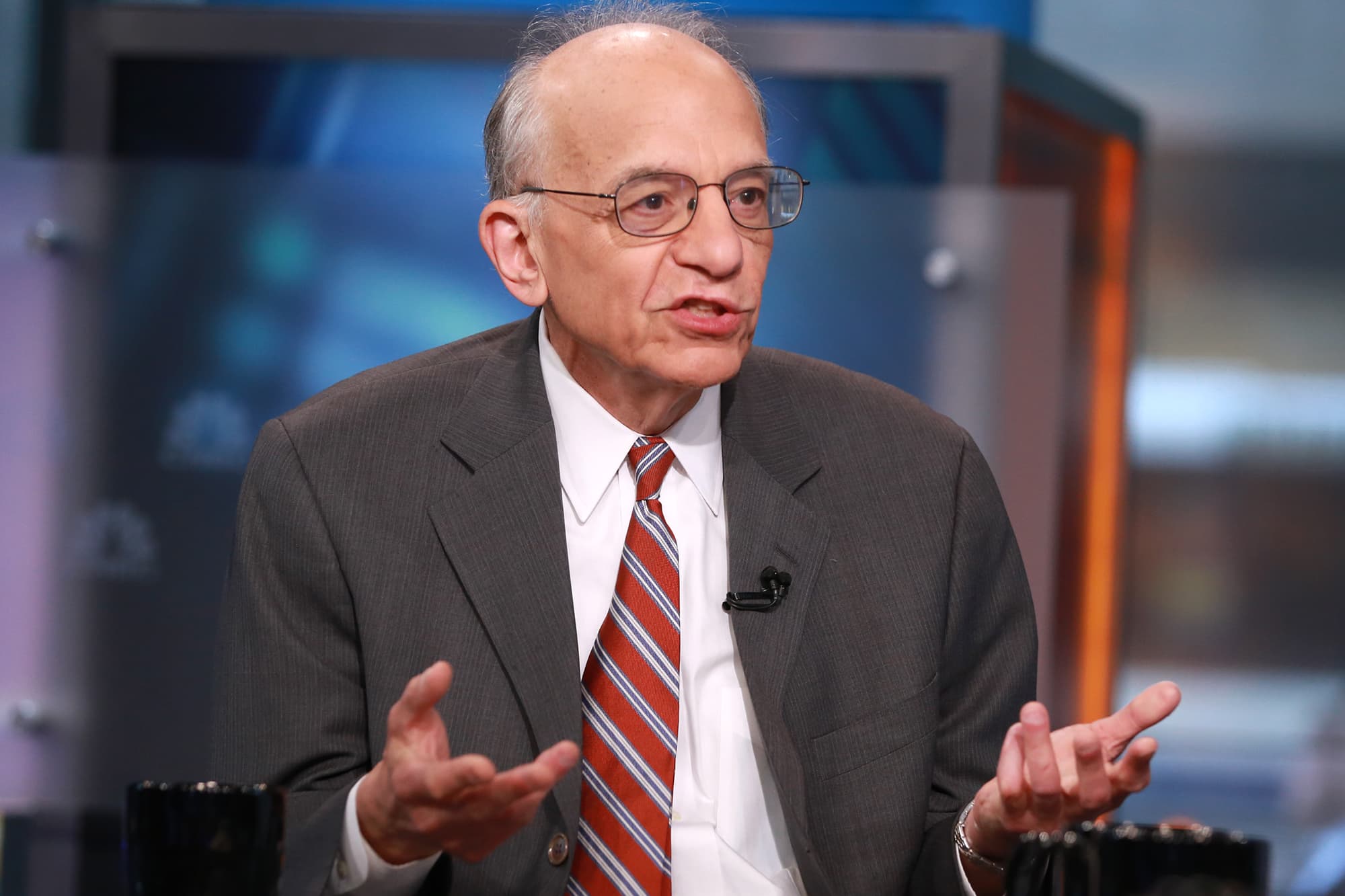When it comes to investing, mistakes are unavoidable. Even the greatest investor of all time made mistakes.
 "Warren Buffett's biggest mistake might be dumping Disney stock twice. The investing guru sold significant stakes in Disney on two occasions, potentially leaving $20 billion on the table.
"Warren Buffett's biggest mistake might be dumping Disney stock twice. The investing guru sold significant stakes in Disney on two occasions, potentially leaving $20 billion on the table.
The so-called Oracle of Omaha met Walt Disney in 1966, when the animator's company was valued at less than $90 million — about 0.04% of its current market capitalization.
"At Disneyland, the $17 million Pirates of the Caribbean ride would soon open," Buffett wrote in his 1995 letter to shareholders. "Imagine my excitement — a company selling at only five times rides!"
The future Berkshire Hathaway chairman and his partners wasted no time buying a 5% stake in Disney for $4 million. The shares more than doubled in value by 1995. "That decision may appear brilliant," Buffett wrote. "But your chairman was up to the task of nullifying it."
Indeed, Buffett sold the shares a year after buying them, netting a comparatively meager 55% profit. A fact that must sicken the so-called Oracle of Omaha: a 5% stake in Disney would be worth an astounding $12.3 billion today." Read more...
When you're a beginning investor, the first step in minimizing investment mistakes is to educate yourself. There is much information available on the web today, but finding the right information can be difficult. Read as much as you can in order to better understand the stock market and its intricacies.
Keep in mind that economics typically takes precedence over management. Management can change very rapidly; however, a business's economics is normally more stable. If you have a choice between a business that is very profitable with average management and a business that is not money making with great management, then you should select the first choice.
Don't let potential poison seeds into your portfolio. For example, watch out for companies that currently sell or that have historically sold products that involved asbestos. Potential liabilities and lawsuits could obliterate that company, as well as, your stock in it. Just a little research can usually warn you away from obvious or highly likely disasters.
It is important to buy a stock when it has fallen and to sell it when it is high. People think that the best time to buy a stock when it is high, and they sell it when it is low. This is how so many people end up losing large amounts of money in the stock market. Do not allow your fears to take over your decision making.
Before you decide to invest with a certain company, be sure to investigate the credibility of the company. Look into newspaper reports to be sure they have not and are not being investigated for any type of fraud. You can also look into their credit rating to make sure that they are currently up to date on their accounts. It is better to be safe than sorry.
In order to guard against sharp drops in the fortunes of particular industry sectors, it is important to keep stocks of various types in your portfolio at all times. That way, you can remain insulated from unexpected losses in one area of the market because you continue to hold assets in sectors that are performing better.
Ensure your expectations are reasonable when investing. You can't get into stocks with the expectation that you are going to get rich quickly. Unless you have an extreme amount of luck, you are not going to double your money within a year. Doubling your money in a year requires taking a lot of risk, and unless you know the future, you will likely suffer losses.
Keep in mind that the value of a stock involves much more than simply its price. It is definitely possible for an expensive stock to be undervalued, and for a stock that is worth pennies to be severely overvalued. When deciding whether or not to invest in a particular stock, there are several other factors to consider that are more important. The price of a stock should be only one small part of the decision.
Avoid impulse buys in the stock market. You certainly might wake up some mornings to find that a stock has jumped 10%, 20%, or even 30%. Before you decide to make that purchase, do a little research. Make sure that this stock isn't being affected by some hot trend, because that trend might diminish as quickly as it came about. If you wait to buy, at certain times, instead of always buying on impulse, you can prevent big losses that might take you out of the stock market for good.
Investing should not be considered a hobby. It's a very competitive business, so you should treat it as such. You must understand your own profit and loss as well as those companies making those investments. Keeping this in mind can make the thought process and strategy creation for investing much easier.
Ensure that your focus is on businesses that have been increasing intrinsic values on their shares in the long run. By focusing on businesses with large economic moats, you will discover companies that are almost certain to have higher earnings in about ten years. This allows you a greater chance to earn profits.
Now that you've finished this article, you should have a better understanding of the way the stock market works and how you can use it to your financial advantage. Take heed of this practical advice, and you'll be on your way to making wise investment decisions that will prove to be profitable.
from Investment News, Investment Strategies, Investment Opportunities - Feed http://www.quantitativeinvestmentgroup.com/investment-mistakes-to-avoid/
 "When it comes to redefining the strategies, most industries in the market are adopting big data analytics, and the stock market is no exception to it. Stock Market is one of the major financial areas that use analytical strategies for competitive strategies.
"When it comes to redefining the strategies, most industries in the market are adopting big data analytics, and the stock market is no exception to it. Stock Market is one of the major financial areas that use analytical strategies for competitive strategies. "Stocks rallied on Monday as President Trump said China wanted to restart trade negotiations, calming investors that were preparing for an extended trade war after an explosive weekend of tariff announcements.
"Stocks rallied on Monday as President Trump said China wanted to restart trade negotiations, calming investors that were preparing for an extended trade war after an explosive weekend of tariff announcements. "Investors appear to be treating bitcoin as a haven asset similar to gold, given the volume of cryptocurrency trading has increased during the conflict.
"Investors appear to be treating bitcoin as a haven asset similar to gold, given the volume of cryptocurrency trading has increased during the conflict. "A 2018 report from Realtor.com revealed that millennial homebuyers are taking on bigger mortgages than ever before — a result of more millennials buying higher-priced homes and making lower down payments.
"A 2018 report from Realtor.com revealed that millennial homebuyers are taking on bigger mortgages than ever before — a result of more millennials buying higher-priced homes and making lower down payments. "American small and medium-size companies that rely on China are scrambling to adjust their business plans in response to the escalating trade war.
"American small and medium-size companies that rely on China are scrambling to adjust their business plans in response to the escalating trade war. "After you've made a list of all your investments and assets, it's time to think about your risk tolerance. As the winds of the market shift around, risk sentiment will move as well. There is no such thing as an investment that is 100% safe.
"After you've made a list of all your investments and assets, it's time to think about your risk tolerance. As the winds of the market shift around, risk sentiment will move as well. There is no such thing as an investment that is 100% safe. "Falling interest rates around the world have fueled the gold rally. Meanwhile, other looming problems are also creating fear and uncertainty in markets that are causing a herd of buyers to go for the gold these days. The trade and currency war between the US and China is a leading issue weighing on the global economy. The deadline for a hard Brexit is on October 31, and Prime Minister Boris Johnson has pledged that he will take the UK out of the EU with or without an agreement. Europe also faces a potential problem in Italy over the coming weeks.
"Falling interest rates around the world have fueled the gold rally. Meanwhile, other looming problems are also creating fear and uncertainty in markets that are causing a herd of buyers to go for the gold these days. The trade and currency war between the US and China is a leading issue weighing on the global economy. The deadline for a hard Brexit is on October 31, and Prime Minister Boris Johnson has pledged that he will take the UK out of the EU with or without an agreement. Europe also faces a potential problem in Italy over the coming weeks.